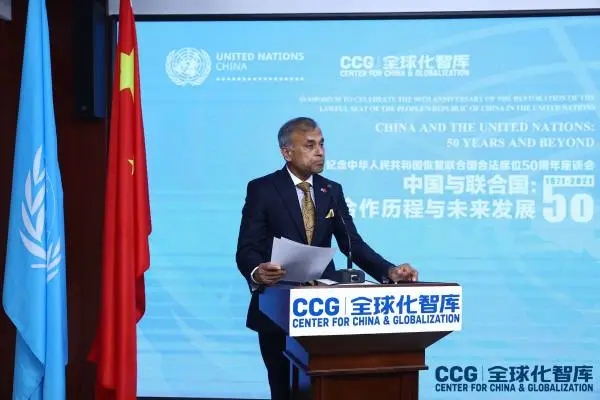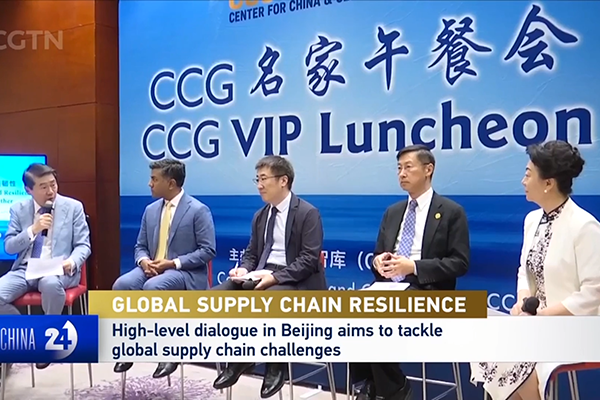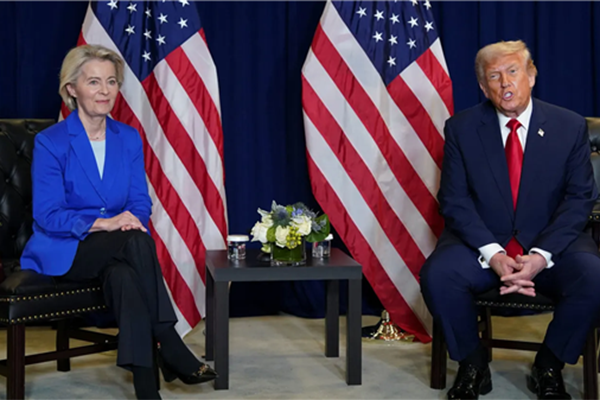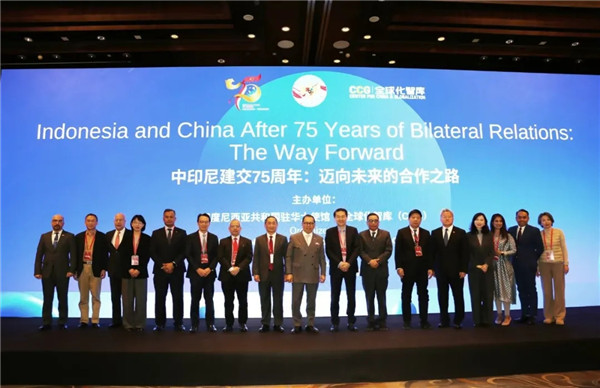【China.org】China taking steps to address inequality, climate change
November 04 , 2021A United Nations official has underlined China’s proactive role in improving global governance and contributing to the goals of the U.N. 2030 Agenda for Sustainable Development.

Siddharth Chatterjee, the U.N. Resident Coordinator in China, delivers a keynote speech at a symposium celebrating the 50th anniversary of the restoration of China’s lawful seat in the U.N. The symposium was organized by the Center for China and Globalization, a Beijing-based think tank, on Nov. 2 in Beijing. [Photo courtesy of CCG]
A United Nations official has underlined China’s proactive role in improving global governance and contributing to the goals of the U.N. 2030 Agenda for Sustainable Development.
China is preparing to move fast to address the development gap between rural and urban areas, boost its social security system and reverse climate change, said Siddharth Chatterjee, the U.N. Resident Coordinator in China, during a symposium on Tuesday in Beijing.
Chatterjee reviewed the progress China has made in poverty alleviation, public health, education and economic growth over the past 50 years since the country’s lawful seat in the United Nations was restored in 1971. He further emphasized the collaboration between the U.N. and China to deliver tangible development results to people.
“The role of the U.N. in China has shifted from a traditional donor to that of a partner providing technical expertise and support both within and beyond its national boundaries, including in its activities under the framework of the South-South cooperation,” he said.
Given the fallout of the COVID-19 pandemic and imminent crisis brought about by climate change, Chatterjee highly recognized China’s new development paradigm, which is a model of green, equitable, sustainable growth that aims to achieve common prosperity for all people.
China has long been working to bridge the development gap between different regions across the country. Since the 18th National Congress of the Communist Party of China in 2012, the term “common prosperity” — which refers to affluence shared by everyone, both in material and cultural terms — has been given greater prominence in multiple national development strategies.
With China’s success in building a moderately prosperous society in all respects, it is taking more solid steps toward the U.N. 2030 Agenda. For example, China has increased per capita government subsidies for basic public health services, established pilot zones for high-quality education reform and easing students’ academic burden, improved per capita water availability, and promoted clean energy to some 28 million households in the country’s northern region, to name a few.
In addition, a report released during the Sustainable Development Forum 2021 also recognized the promising prospects of China’s carbon emission goals. According to the report, the natural carbon sink capacity in China and the global ecosystem both showed a significant increase in the past 10 years.
The country has now become the world’s largest market for renewable energy, with renewable power accounting for 29.5% of total electricity consumption. China’s energy consumption per unit of GDP also decreased by 28.7% between 2011 and 2020, which is one of the most rapid reductions anywhere in the world.
“We are pleased to see that China is preparing to move fast to address these challenges,” Chatterjee said. “We and the United Nations stand ready to work with the Chinese government to realize this ambitious plan, such as rural revitalization, peaking carbon emissions by 2030 and achieving carbon neutrality by 2060.”
From China.org, 2021-11-04






